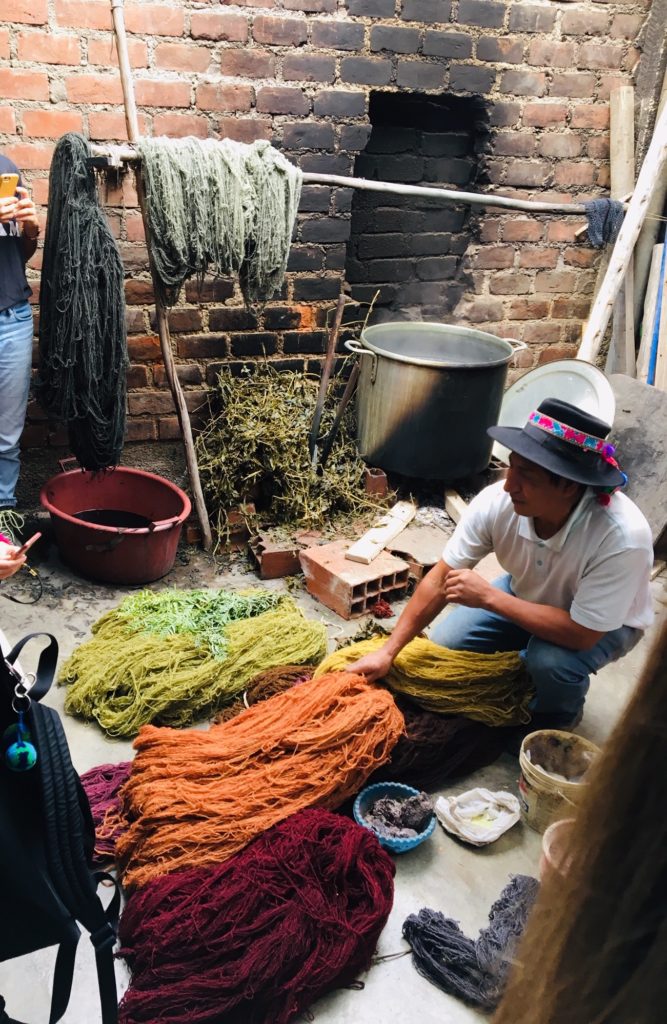
I had the fortune to be able to attend the 15th International fair Trade Summit in Lima, Peru this past month, along with members of the NYC Fair Trade Coalition, and gained a deeper understanding of the importance of fair trade certified products. Products that are produced with a Fair Trade certification mean that care is taken to ensure workers are paid fairly, working conditions are humane, no child labor is used, and environmental sustainability is factored into production. They are usually “artisanal,” hand-made or in small batches. Some common fair trade products are coffee, chocolate, and sugar, as well as clothing, jewelry, rugs, and handcrafts. Guests brought beautiful examples of all of the above from all around the world! Quite incredible to see.
Several conference workshops focused on climate change and the impacts to farmers producing the materials needed to create Fair Trade products. The Cool Farm Alliance spoke about their Cool Farm Tool – an online greenhouse gas, water, and biodiversity calculator. One workshop I attended had a lively debate on whether all Fair Trade products should be organic, with arguments on both sides—while most people would love to see all products produced using materials that are certified organic, sometimes it is not practical depending on market conditions, and this can sometime be due to the cost of certifying and maintaining farmland organically when it comes to food products, for example. The topic of upcycling (transforming unwanted materials into higher value items) and circular economy (an economic system aimed at eliminating waste) were discussed in terms of ways to reduce waste in production, and also issues of race and class in international trade—who is producing for who? Is the system truly fair?
We visited a Fair Trade Certified pottery shop, a chocolate factory making candy from jungle cacao, and a textile weaving company. All incredible to see. When you see the work, time and detail that goes into making items, and the faces behind that labor, it gives you a much deeper appreciation for the products they produce. The final leg of our journey led us to the magical heights of the lost Incan city of Machu Picchu and many sightings of llamas and alpacas, the fur of which is used to make a plethora of Peruvian textile products. Overall an unforgettable experience that taught me never to take hand-made items in our stores for granted. You can make a difference -- what we buy does matter—so always look for the Fair Trade symbol whenever possible. #FairTradeSummit

